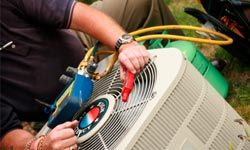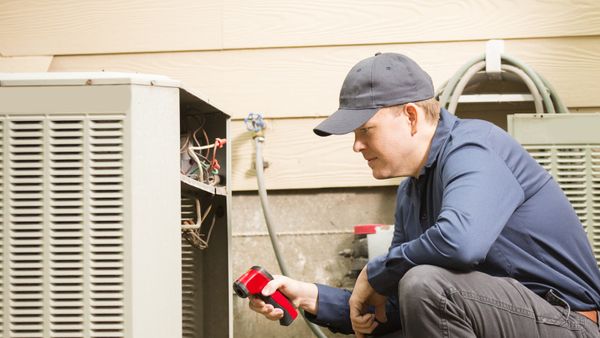Many people think their air conditioners work by pumping hot air out of their homes or offices, and pumping cool air in. That’s not quite right. The hot air is actually cycled back in as cold air. This circuit continues until the thermostat drops down to the target temperature.
How does your air conditioner manage this? In a similar way to how your refrigerator manages to stays cold, but minus the insulated box. A nonflammable gas, known as Freon, undergoes an evaporation process again and again within most refrigerators in order to keep the temperature low. The same cycle is used for air conditioners.
Advertisement
This is how it works: First, a compressor in your air conditioner compresses cold Freon gas. A small amount of oil is combined with the Freon gas to lubricate the compressor. When the Freon gas is compressed, its pressure rises, making it very hot. Next, the hot Freon gas moves through a series of coils, which has the effect of lowering its heat and converting it to liquid. The Freon liquid then flows through an expansion valve, which causes it to cool down until it evaporates. The result is low-pressure Freon gas. The cold gas is then channeled through another set of coils. This allows the gas to absorb heat and lower the air inside the room or building.
Your air conditioner filters the air in the room and cleans out dust, pollen, smoke and other kinds of dirt, pollutants and allergens. Air conditioners often take excess water from the air, too, use it to cool down the system, and pump it outside through a hose. In this way, they dehumidify the air inside. Some air conditioning units are able to use the condensed moisture as cool water repeatedly within the system.
Advertisement




